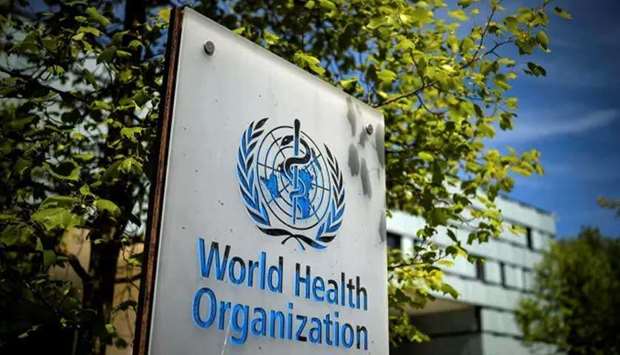The Delta variant of the coronavirus (Covid-19) is a warning to the world to suppress the virus quickly before it mutates again into something even worse, the World Health Organisation (WHO) said on Friday.
The highly-transmissible variant was first detected in India.
The US Centres for Disease Control and Prevention (CDC) has described the Delta variant of the coronavirus as being as transmissible as chickenpox and cautioned it could cause severe disease, the Washington Post said, citing an internal CDC document (see report on page 8).
It has now surfaced in 132 territories and is partly to blame for an 80% rise in coronavirus deaths in Africa over the past four weeks, the WHO said.
“Delta is a warning: it’s a warning that the virus is evolving but it is also a call to action that we need to move now before more dangerous variants emerge,” the WHO’s emergencies director Michael Ryan told a press conference.
“Hard-won gains are in jeopardy or being lost, and health systems in many countries are being overwhelmed,” WHO chief Tedros Adhanom Ghebreyesus added. “So far, four variants of concern have emerged – and there will be more as long as the virus continues to spread.”
Though Delta has shaken many countries, Ryan said that proven measures to bring transmission under control still worked.
“The same measures that we have applied before will stop that virus,” notably physical distancing, wearing masks, hand hygiene and avoiding long periods indoors in poorly ventilated, busy places,” he said. “They are stopping the Delta strain, especially when you add in vaccination. But we need to work hard.”
“The virus has got fitter, the virus has got faster. The game plan still works, but we need to implement and execute our game plan much more efficiently and much more effectively than we’ve ever done before,” Ryan added.
Tedros said that on average, infections increased by 80% over the past four weeks in five of the six WHO regions.
Maria van Kerkhove, the WHO technical lead on Covid-19, said that the Delta variant is the most easily spread so far, about 50% more transmissible than ancestral strains of Sars-CoV-2 that first emerged in China in late 2019.
A few countries had reported increased hospitalisation rates, but higher rates of mortality had not been recorded from the Delta variant, she said.
The UN health agency has consistently called for vaccines to be distributed more evenly around the world.
More than 4bn doses of Covid-19 vaccines have now been administered globally, according to an AFP count.
In countries deemed high income by the World Bank, 98 doses per 100 people have been injected.
That figure drops to 1.6 per 100 in the 29 lowest-income countries.
Ryan said: “There are no gold and silver bullets here; there are no magical solutions; there’s no magic dust.”
“The only magic dust we have is vaccination,” he said. “The problem is we’re not sprinkling that evenly around the world and we are working against ourselves.”
Japan said yesterday that it would expand states of emergency to three prefectures near Olympic host city Tokyo and the western prefecture of Osaka, as Covid-19 cases spike in the capital and around the country, overshadowing the Summer Games.
Ryan noted that Tokyo had recorded more than 3,000 cases in the past 24 hours, among some 10,000 new infections in Japan.
“The Olympics is a part of that overall context and the risk management that is place around the Olympics is extremely comprehensive,” he said.

The Delta variant of the coronavirus infections increased by 80% over the past four weeks in five of the six WHO regions.
